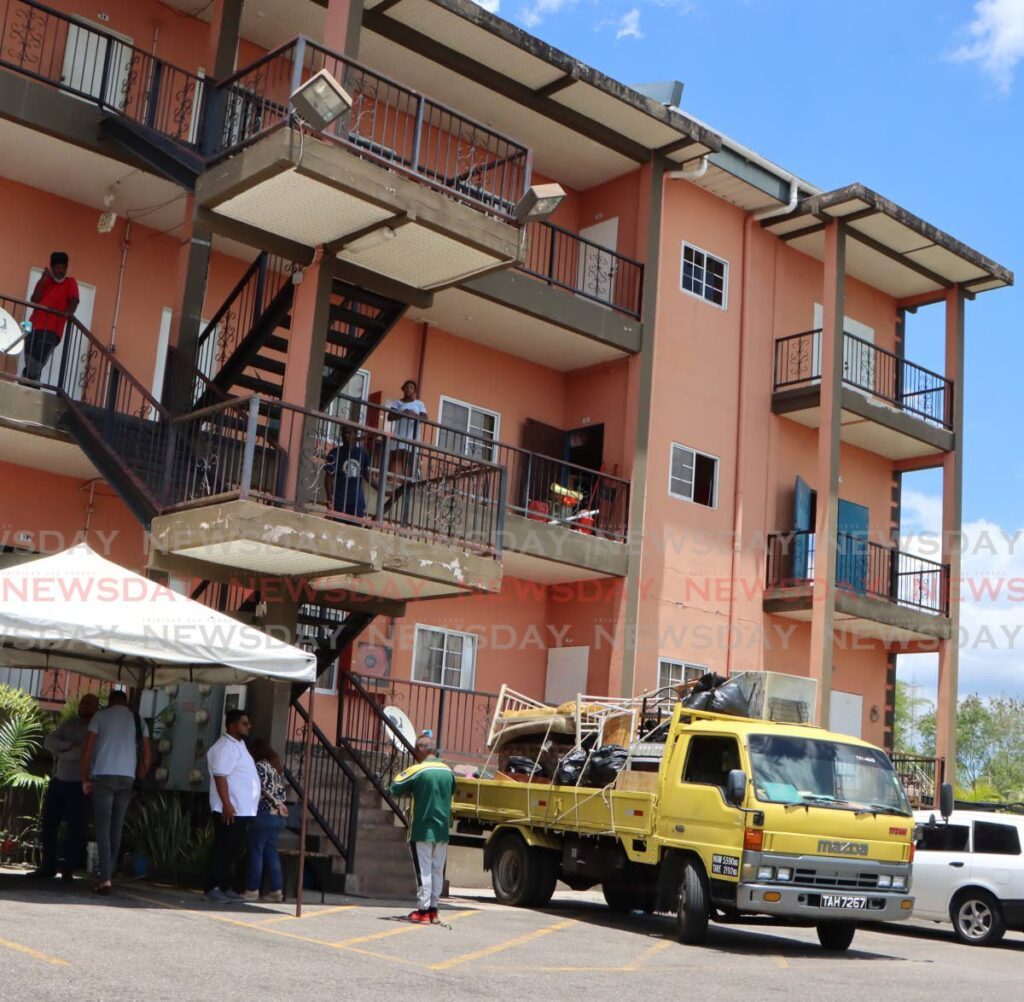Hard decision on HDC tenants

At the beginning of May, the Housing Development Corporation (HDC) warned that it was “targeting” tenants of its housing developments for rent and mortgage collection.
That warning came after a mother of two was evicted from her San Fernando apartment after her arrears increased to $60,000 over two years.
By then, the collections drive had resulted in 15 other evictions.
The warnings to renters and mortgagees began in earnest in July 2022, when Housing Minister Camille Robinson-Regis asked them to settle more than $1 billion in arrears.
Tenants would have received letters from the HDC warning of the scope of their arrears, along with invitations to visit its offices either to settle their debts or set up a manageable payment plan.
These debts have been a continuing problem for the corporation, which last launched an aggressive collection drive in 2017. When these debts to the corporation began mounting again, the HDC introduced new options to make payments easier for its customers.
It’s unfortunate that the corporation’s efforts to provide affordable housing continue to be taken for granted by so many of its tenants.
It’s also clear that the pandemic severely disrupted the lives of many workers, the most marginal of whom found themselves essentially unemployed for almost two years and facing staggering debts that some are still coming to terms with.
The corporation may be taken for granted, but the recurrent nature of the problem suggests it may not simply be a chronic unwillingness among HDC tenants to pay what’s due for their housing.
Eviction is not just a last resort; it has a strong shaming element.
The HDC is not just a landlord; it is a social intervention for some of its lowest-income customers, and it should also examine its own systems to ensure it is appropriately responsive to the multifaceted needs of these challenged families.
This is not a problem unique to Trinidad and Tobago.
Studies in the UK of its social housing system suggest effective rent-collection strategies and support systems are core to addressing the problem.
One such study found that demographically, single people under retirement age, unemployed tenants and families with children were the customers most likely to accrue arrears, while pensioner households and couples without children were less likely to do so.
Other studies found links between continuing arrears issues and households which faced more pressing debts or mental health issues.
Does the HDC have that clarity of understanding of its tenants to address their challenges more effectively?
Eviction suggests the corporation is seeking better tenants, those more capable of making payments on their homes. But it should also consider improving its systems for existing tenants to help them become more organised and dependable customers.


Comments
"Hard decision on HDC tenants"